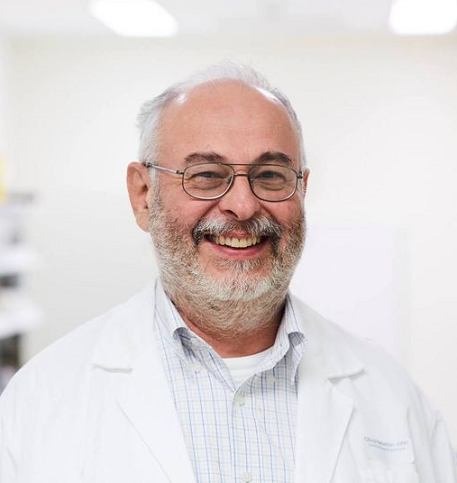
A/Prof Alex Dobrovic is head of the Molecular Pathology Research and Development Lab at the Peter MacCallum Cancer Centre. He is expert in mutation, methylation and expression analysis of clinical samples and has published extensively in this area. He has designed and tested the assays to be used in the EMPathy BCN grant and will supervise their performance and interpretation.
Associate Professor Alexander Dobrovic has a PhD in Genetics and has since been an active researcher in cancer molecular genetics and pathology. He has a focus on personalized medicine including developing clinically relevant innovative diagnostic methodologies. This includes tests for detection of KRAS, BRAF and TP53 mutations that have entered routine diagnostics. He is also developing protocol for detecting cancer using the plasma fraction of blood. These interests will be continued by overseeing diagnostic development in the EMPathy BCN program.
His group has worked solidly on genetic and epigenetic determinants of response to therapy and has developed important collaborations with Australian and international researchers. A major research interest is the desire to transform chemotherapy into targeted therapy by identifying molecular targets using high dynamic range gene expression and DNA methylation analysis. Another major research interest is in the emerging field of examining the role of epigenetics in cancer predisposition, in particular the constitutional mosaic methylation of hereditary cancer and other recessive cancer genes. This requires the development of methods of DNA methylation analysis that are both accurate and sensitive. A new focus is on understanding plasticity in cancer and its role in drug resistance. This may bear a strong relationship to the epithelial mesenchymal plasticity that is the focus of this EMPathy consortium.
Key Achievements and Awards
- Demonstrating a novel mechanism of breast cancer predisposition (Wong et al., 2011)
- New understanding of complex methylation patterns (Mikeska et al., 2010; Candiloro et al., 2011)
- Development of methodologies for more accurate detection of mutations in clinical samples (Do et al., 2009)
